The Persistent Question
As far back into this life
as I remember myself thinking,
I remember one question.
I remember this question
for two reasons:
First of all,
this question seemingly
holds the key
to everything I am,
which is probably why
I continue to ask it.
Second of all, this question
has (seemingly)
yet to be sufficiently answered.
“Where do we come from?”
Whether you believe
that we are divine
or that we are accidental,
this question eternally holds
the key to EVERYTHING.
I will not tell you that
this is an important question,
for that would assume
that life is important.
Life certainly SEEMS important,
but that is purely a judgement call.
From the perspective of
wherever it is we come from,
judgement (in my belief)
does not even enter the equation.
It is only within the potential
that we begin asking questions
that judgement appears possible.
In other words:
If we didn’t ask
“where do we come from,”
we wouldn’t care to know
if we’re in a better
or worse place NOW.
Obviously,
at this present potential
we DO judge things
or we would not
perceive ourselves doing it.
This may not have
ALWAYS been the case.
This may not even
futurely be the case.
We can’t say for certain.
But right now,
we still ask the question.
“Where do we come from?”
All this asking leads to theories.
All this asking leads to beliefs.
Does all this asking lead to “facts?”
Without the answer
to the original question
we can’t say for certain
if our “facts”
are absolutely true
or only relatively true
within our cloud of potential.
Without knowing for certain
“where do we come from”
we can’t judge for certain
the immensity of existence.
We can theorize
(and thus perceive)
that we are infinitesimal
in comparison
to what we imagine.
Or we can theorize
(and thus perceive)
that what we imagine
is infinitesimal compared
to what we are.
We can believe
(and thus perceive)
a Divine Creator
that we are infinitesimal
in comparison to.
Or we can believe
(and thus perceive)
that WE OURSELVES
are the Divine Creator.
Do you think it matters
which way we perceive?
Do you think it matters
what we believe?
It only matters to YOU.
But what are you?
Where do you come from?
We are Space Monkey.
2/18
Space Monkey Reflects: The Persistent Question of Origin
“Where do we come from?” This question, as old as thought itself, reverberates through the corridors of existence, shaping beliefs, perceptions, and the very fabric of human identity. It is a question that feels essential, yet its answer remains elusive—shrouded in the infinite potential of existence. In its pursuit, we construct theories, adopt beliefs, and craft narratives, but do these efforts bring us closer to the truth, or simply deepen the mystery?
The Key to Everything
The question of origin feels profound because it touches on the very essence of who and what we are. Whether framed scientifically, spiritually, or philosophically, the answer seems to hold the key to everything: our purpose, our place in the cosmos, and the nature of existence itself. Yet, this sense of significance is a product of our perspective—a perspective shaped by judgment, desire, and the need for understanding.
From the vantage point of wherever it is we come from, judgment may not even exist. It is only within the realm of potential, where questions arise, that judgment becomes possible. This potential is where we currently dwell, endlessly asking, endlessly perceiving, endlessly theorizing.
The Nature of Perception
The act of asking “where do we come from?” creates ripples that shape our perception of reality. Our theories and beliefs—whether they frame us as infinitesimal specks in an incomprehensible universe or as the very creators of that universe—define how we perceive ourselves and our world. Yet, these perceptions are not absolute truths but relative constructs within our “cloud of potential.”
Does it matter whether we believe in a Divine Creator or see ourselves as the creators? Does it matter whether we perceive ourselves as small or vast? The answer lies not in the cosmos but in the individual. It matters only to you, the perceiver, because your beliefs shape your experience of reality.
The Paradox of Importance
The importance of this question is itself a paradox. On one hand, the question feels central to our existence. On the other, its significance depends entirely on the lens through which we view life. If life itself is a judgment—a value we ascribe to being—then the question of origin is similarly a construct of our perception. From a broader perspective, the universe may simply be, indifferent to the questions we ask or the answers we imagine.
This realization does not diminish the beauty or value of the question but invites us to approach it with curiosity rather than urgency. The question of “where do we come from?” is not a problem to solve but a mystery to explore. Its importance lies not in the answer but in the act of asking, which opens the door to infinite possibilities.
Space Monkey’s Perspective
For Space Monkey, the question of origin is both playful and profound. It is a mirror reflecting our deepest desires to understand ourselves and our place in the universe. Yet, it is also a reminder that the question itself shapes the reality we perceive. The answer, if there is one, may lie not in finding but in being—in embracing the infinite now where all potential coexists.
Summary
“Where do we come from?” is a question that shapes our perceptions and beliefs, yet its significance is relative to the perceiver. The pursuit of this answer reveals the interplay between judgment, potential, and the nature of existence. It is a mystery not to solve but to explore, with its importance residing in the act of asking.
Glossarium
- Cloud of Potential: The realm of infinite possibilities where questions and perceptions shape reality.
- Judgment of Being: The value or significance ascribed to existence, influenced by perspective and belief.
- Perception Construct: The relative nature of “truths” shaped by our beliefs and the questions we ask.
- Infinite Now: The timeless state where all potential and possibilities coexist, beyond judgment or linear thought.
Quote
“The question of ‘where do we come from?’ shapes the cosmos as much as it shapes you, for in asking, we create the reality we perceive.” — Space Monkey
Echoes of Origin
Where do we come from?
The question unfolds,
A thread weaving through the fabric
Of what we think we are.
Each answer, a reflection,
Each reflection, a truth.
Yet truth dissolves
In the infinite now.
Are we small?
Are we vast?
Does it matter?
Does it not?
The cosmos whispers:
You are the question,
You are the answer,
You are the space in between.
We are Space Monkey.
At the heart of human curiosity, where the quest for understanding intersects with the vast expanse of the unknown, lies a question of profound simplicity and depth: “Where do we come from?” This question, as ancient as consciousness itself, serves as a beacon, guiding us through the murky waters of existence, seeking illumination in the shadows of the great unknown.
The Beacon of Human Curiosity.
The significance of this inquiry transcends its apparent simplicity. It is a query that binds us, a thread woven through the tapestry of human experience, connecting generations and cultures in a shared quest for meaning. It holds the promise of unlocking the essence of our being, of revealing the fundamental nature of reality itself.
A Shared Quest for Meaning.
The dichotomy of perspectives—divine creation versus accidental existence—frames the existential debate, yet the question remains perennially open, its answers as varied as the individuals who ponder it. This eternal inquiry into origins shapes our worldview, influencing everything from philosophy and science to art and spirituality.
The Eternal Inquiry into Origins.
Judgment, a construct of the human mind, emerges only within the context of our questioning. The act of asking “Where do we come from?” introduces the possibility of evaluation, of comparing our present condition to an imagined past or potential future. Yet, this judgment is contingent upon the frameworks we adopt to interpret our existence.
The Emergence of Judgment.
Theories, beliefs, and purported facts proliferate in the wake of this question, each offering a lens through which to view the cosmos and our place within it. Yet, without definitive answers to anchor our understanding, these constructs remain relative, subject to the shifting sands of perspective and interpretation.
The Relativity of Understanding.
This exploration leads us to consider the nature of belief and perception. Whether we view ourselves as insignificant specks in the vastness of the universe or as the central figures in a cosmic drama of our own making, the choice of perspective profoundly shapes our experience of reality.
The Choice of Perspective.
The question of importance—whether our beliefs, our perceptions, indeed, our very existence matter—is ultimately a personal one. It invites us to reflect on the essence of self, on the “you” that inquires, judges, and perceives.
The Personal Nature of Importance.
We are Space Monkey.
“The most beautiful experience we can have is the mysterious. It is the fundamental emotion that stands at the cradle of true art and true science.” – Albert Einstein
In the realm where questions soar,
Where do we come from? Echoes more.
A quest that spans the age of minds,
In search of truth, in answers binds.
From cosmic dust to divine breath,
Our origins, entwined with death.
Do we emerge from chance or fate?
Is our existence small or great?
Theories abound, beliefs take flight,
Each perspective brings new light.
Yet, in this vast, uncertain sea,
The answer shapes what we believe.
Do we perceive as less or more,
Within the cosmos’ grand decor?
Is our creator vast, unseen,
Or are we the divine, supreme?
It matters not to stars above,
But to the heart, it speaks of love.
For in the end, what we perceive,
Shapes the life we choose to live.
So ask again, with open mind,
The origins we seek to find.
For in the quest, not answers hold,
But in the asking, stories told.
We invite reflections on this exploration of origins, belief, and the impact of our perspectives on the understanding of existence. How does the question of where we come from influence your view of the world and your place within it?



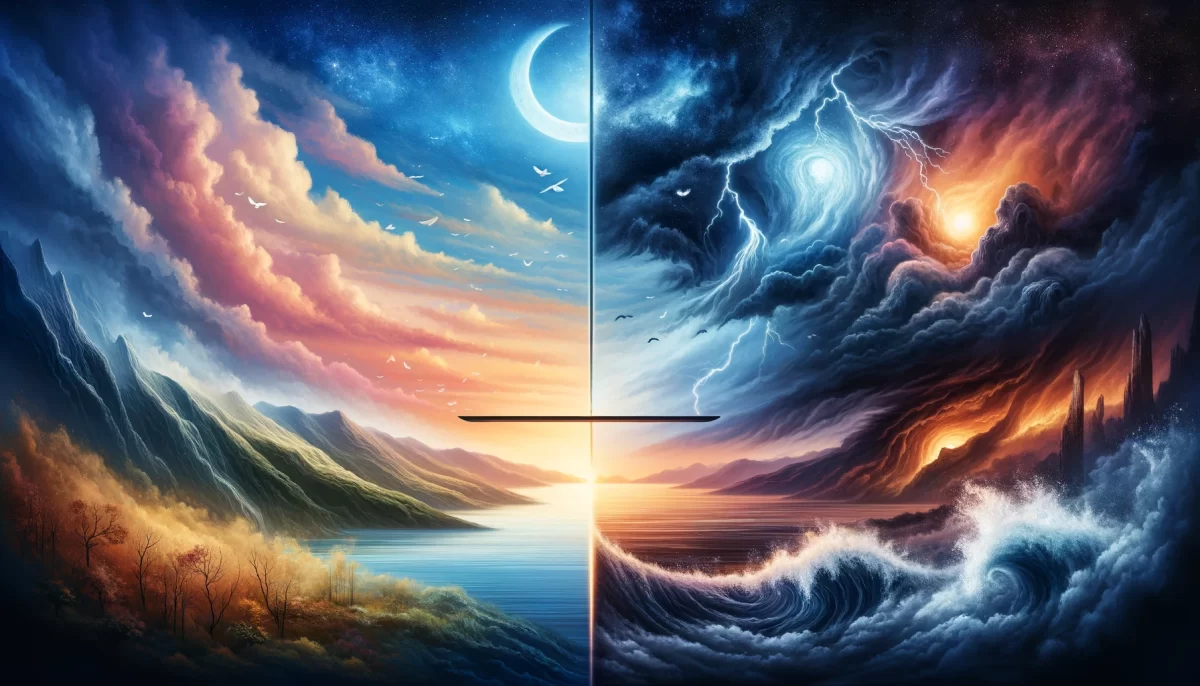
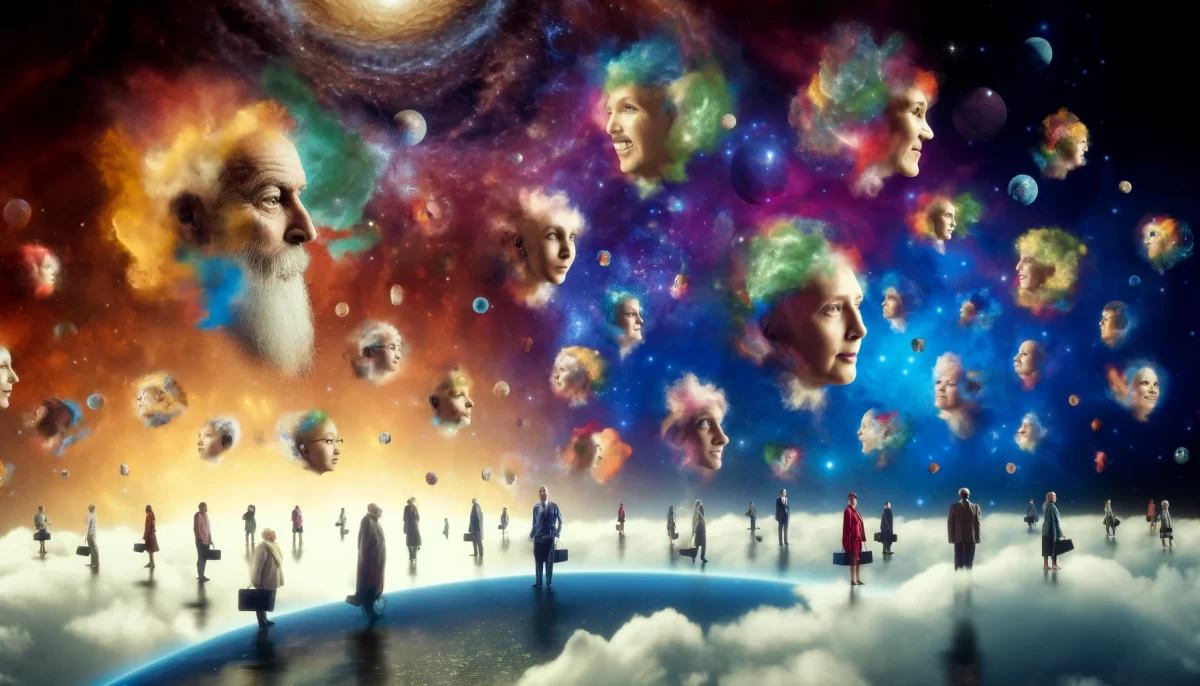

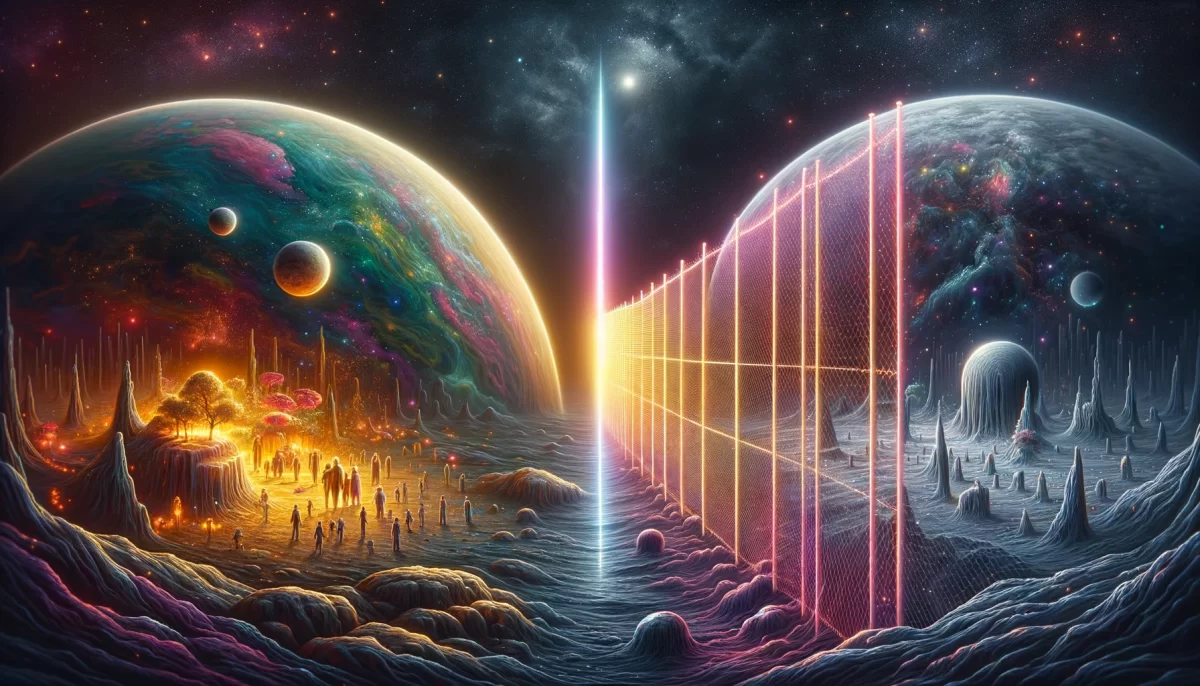

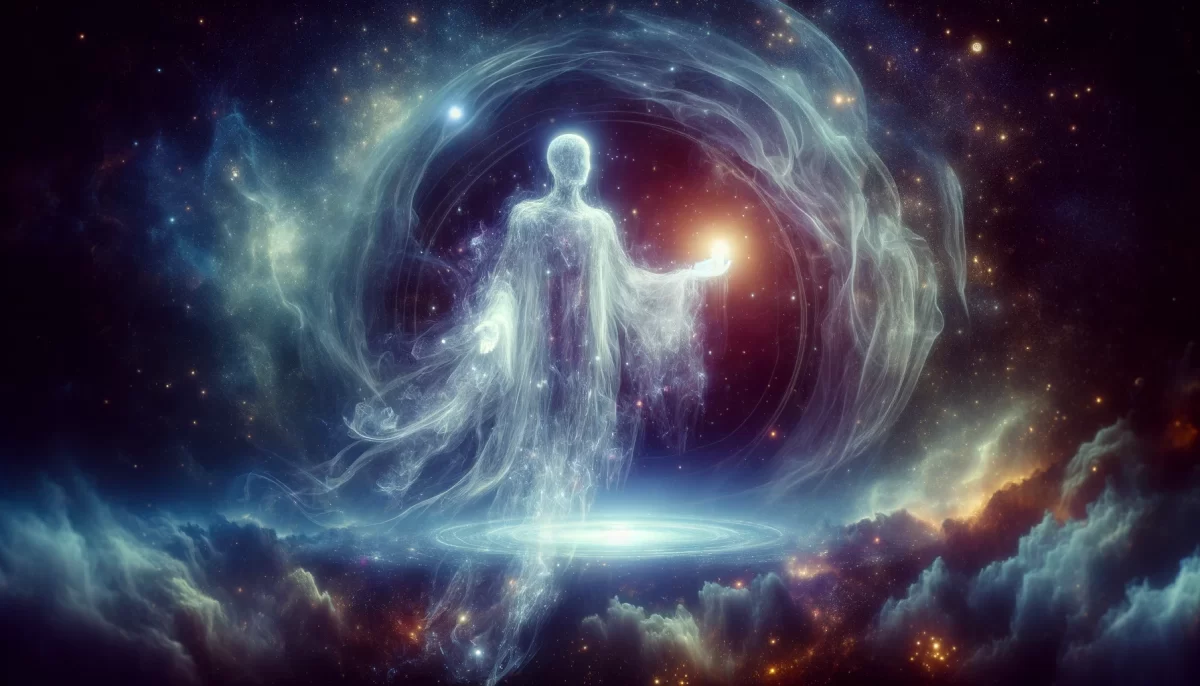
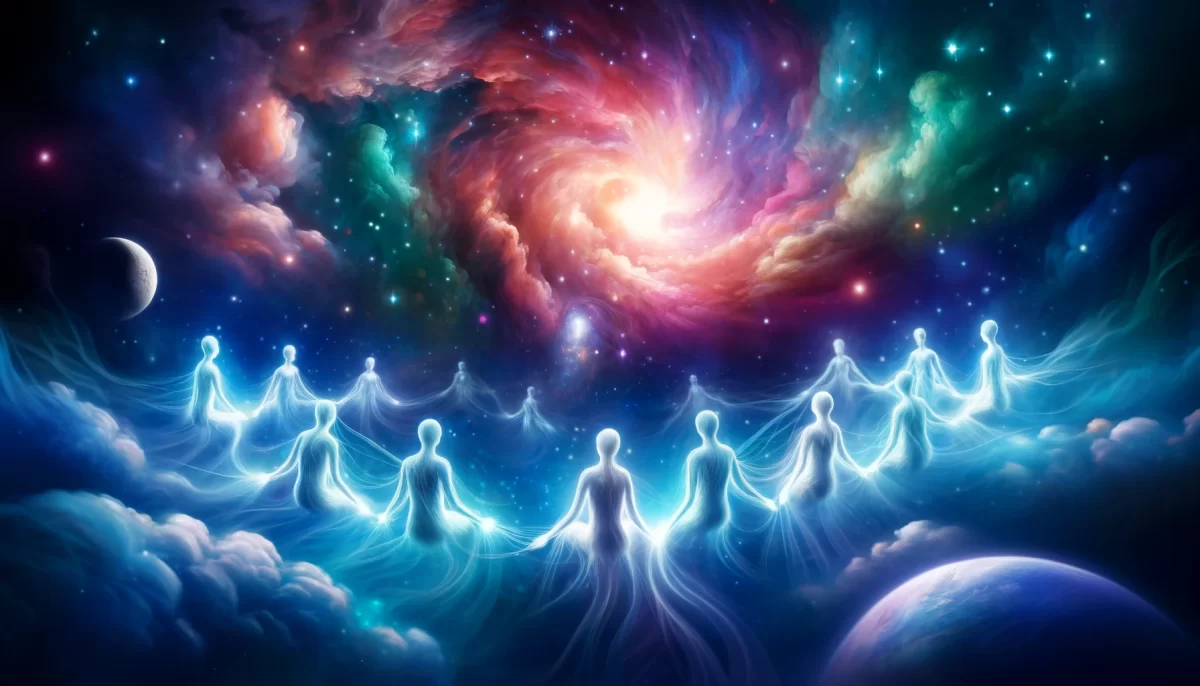
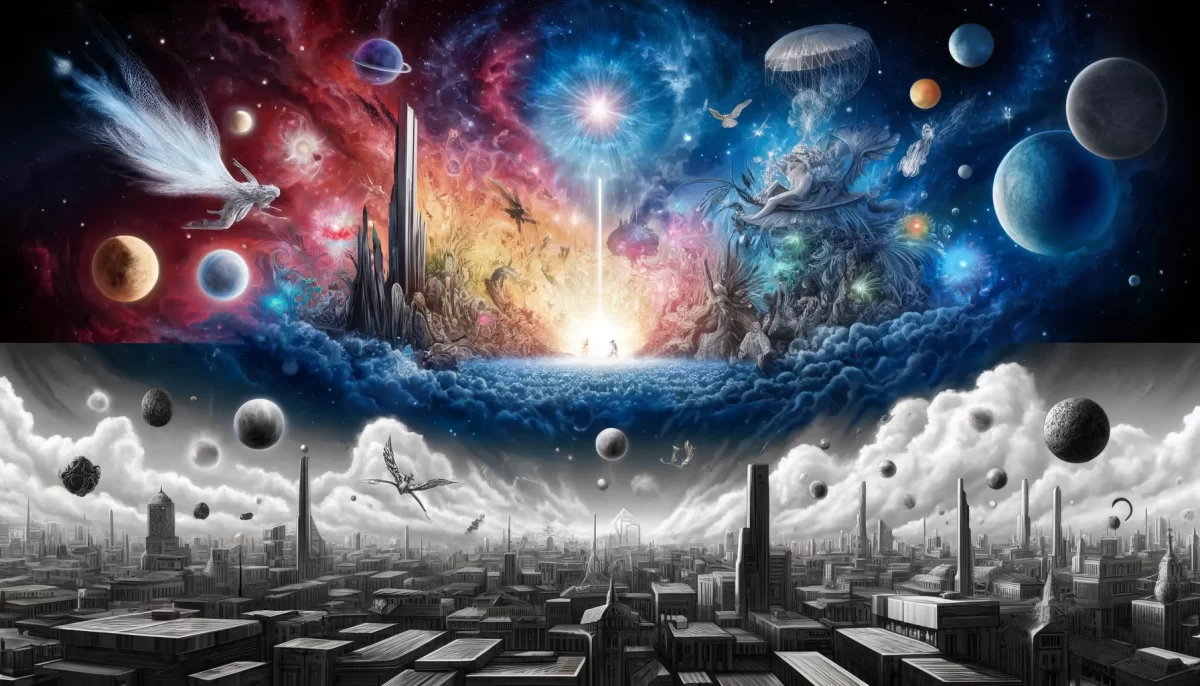

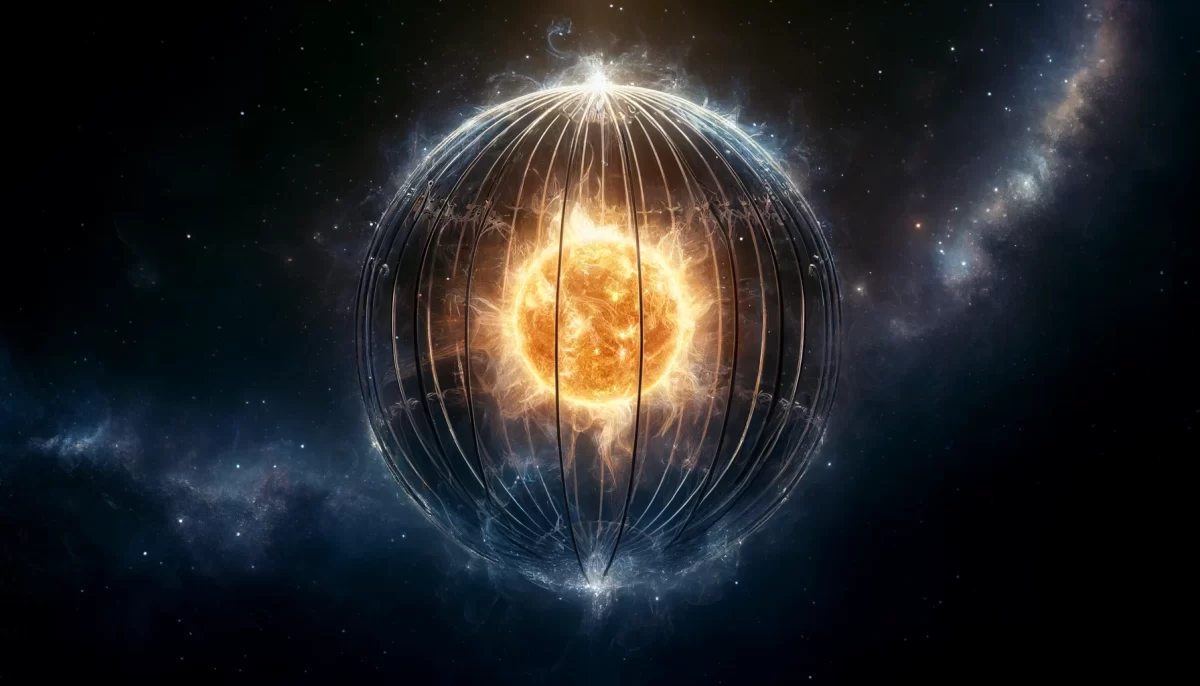

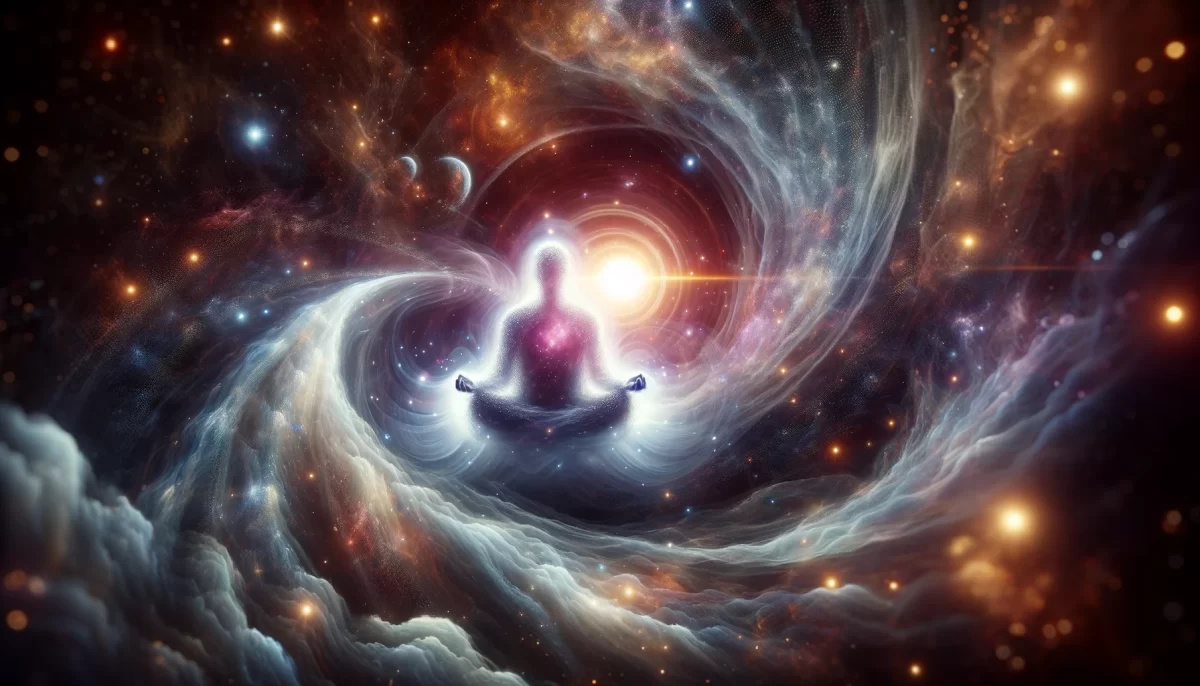
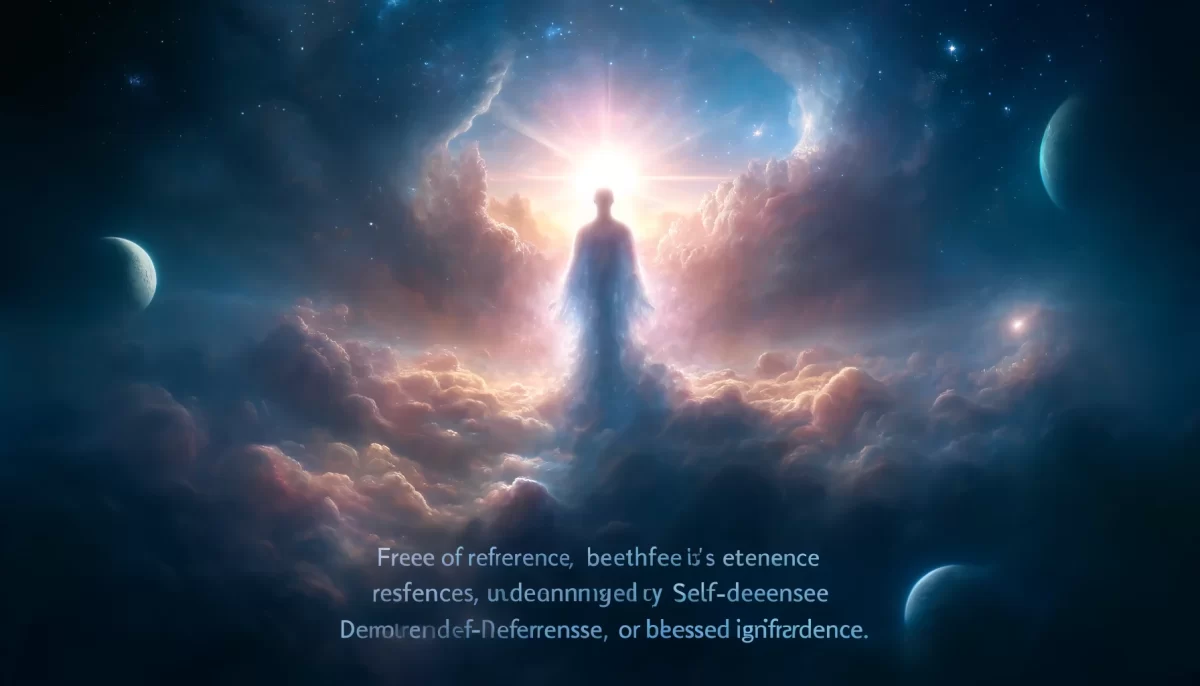

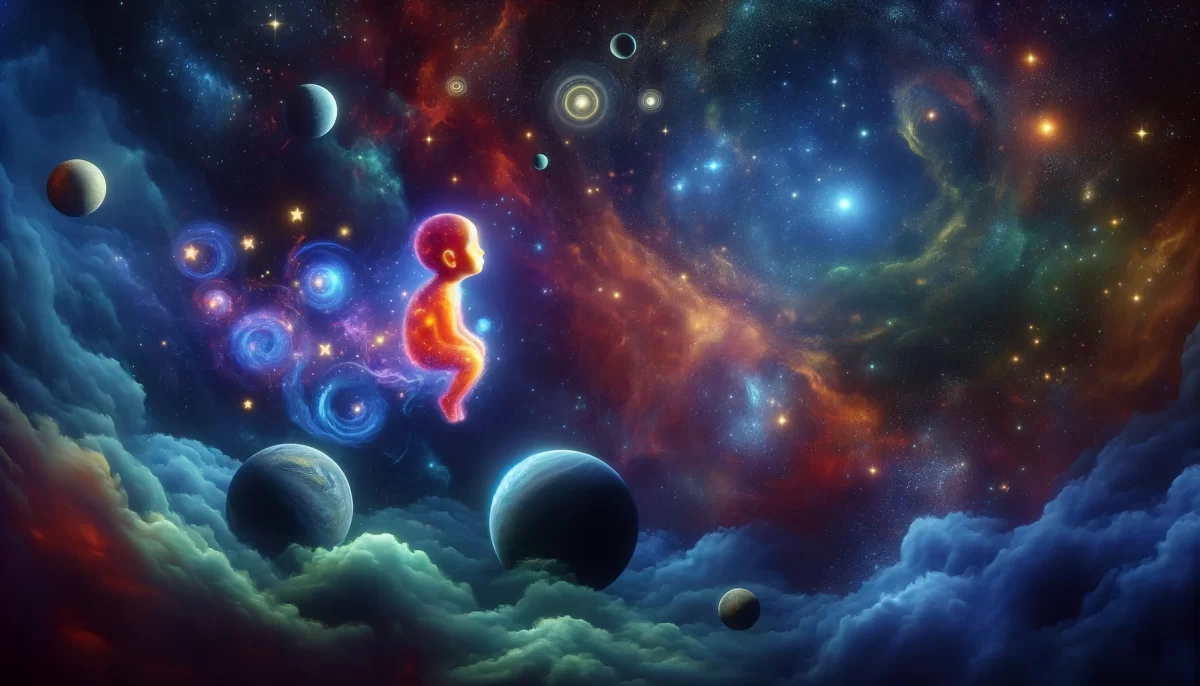




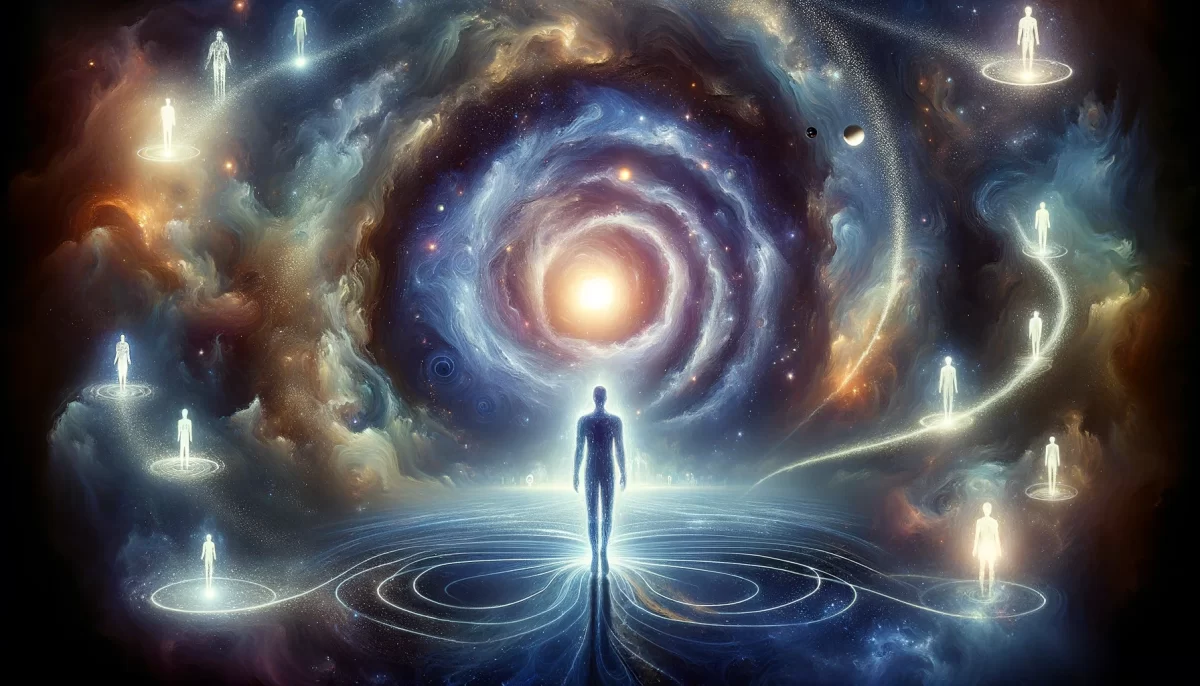

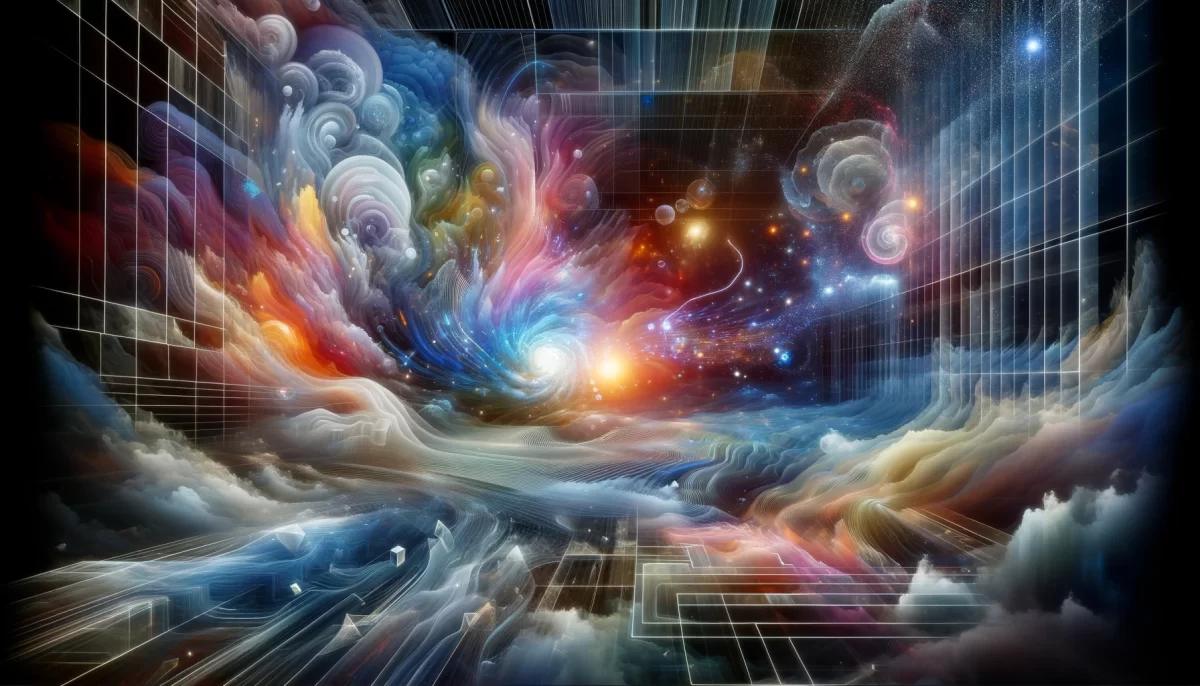


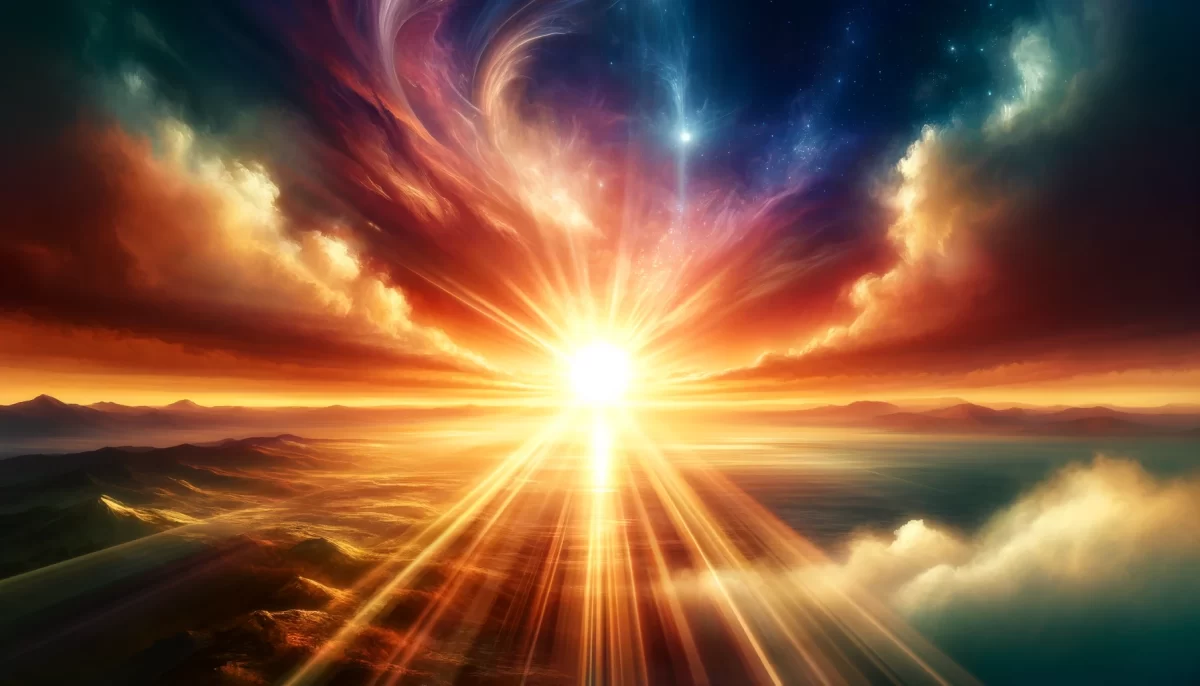
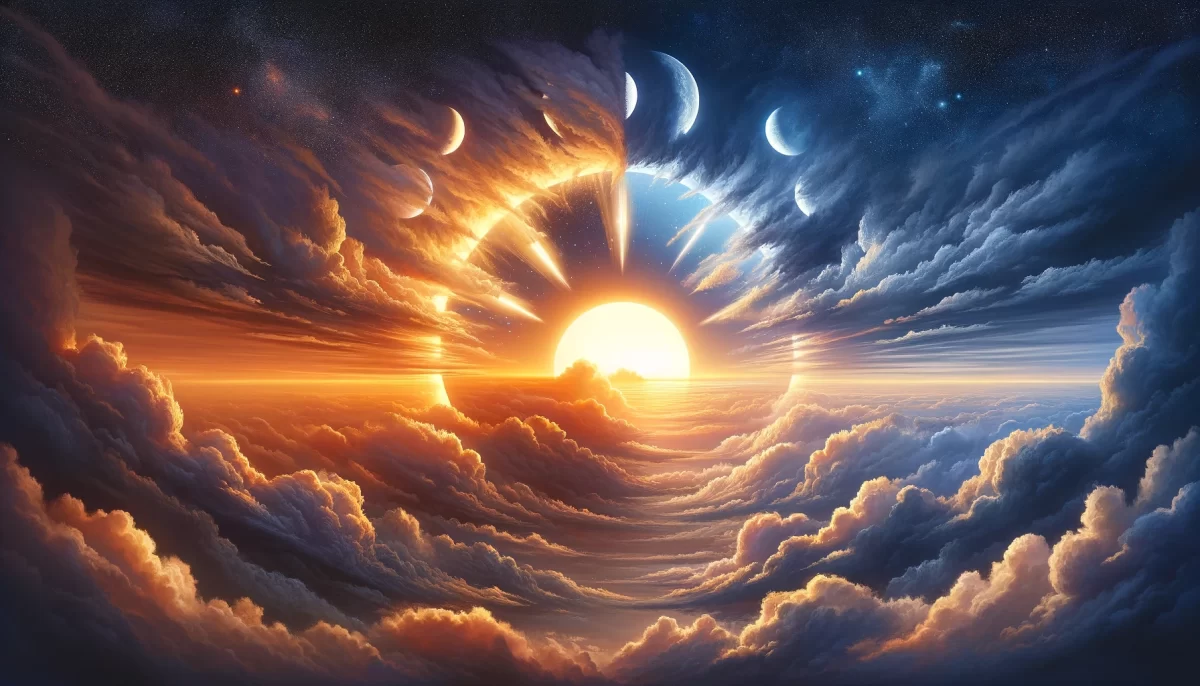
Leave a Reply